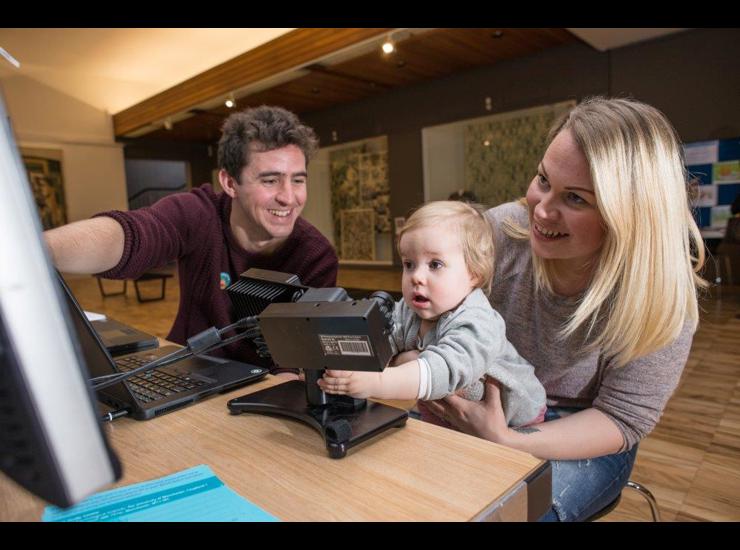
Over the summer I completed a LuCiD internship at the Liverpool Language Lab, supervised by Dr Claire Noble and Dr Samantha Durrant. During my time there, I worked on a range of projects but my involvement was mainly in the ‘Many Babies Project’.
The ‘Many Babies Project’ is a global study involving over 60 worldwide laboratories (including LuCiD colleagues at Lancaster University and the University of Manchester). The main aim of the project is to address the replicability crisis in child research (read the Many Babies theory paper for more information). All the labs taking part in the project will conduct the same experiments. The data will then be collated and compared to examine the effect different lab methods can have on results.
Here in Liverpool, we ran two studies as part of the project, both using the Eyelink eye tracker. The first study investigated the well-established fact that children prefer infant directed speech (IDS) to adult directed speech (ADS). We are studying two different age groups, 6-9 months and 12-15 months. Using the eye tracker, we are measuring how long the participants are interested in looking at the screen during audio recordings of adult directed and infant directed speech. Infant directed speech is something we all adopt when talking to the very young. Compared to adult directed speech it tends to be slower, with a higher pitch and more exaggerated intonation.
The second study investigated gaze following; the main focus of this project is the difference between monolingual and bilingual children. Bilingual children have the additional task of not only growing up learning one new language but learning two or more new languages simultaneously. Not much is known yet about the differences between bilingual and monolingual children and what developmental adaptations must be made to learn the two languages. The project chose to focus on gaze following as it is thought that bilingual children have to be more perceptive to non-verbal cues in order to understand language. Once again, we are using the eye tracker to measure whether the child will follow an adult’s gaze to one of two objects. This data will be submitted along with our IDS/ADS study data. The ‘Many Babies Project’ will then measure the variances between monolinguals and bilinguals in both age groups.
I look forward to the outcomes of this project as I think the results could be very interesting. I am personally interested to see the differences in bilingual and monolingual children as I think it’s fascinating how these young children are managing to learn with apparent ease something that many adults struggle with in later life. I am also interested to see if bilingual children show more consistent gaze following from an earlier age despite past research suggesting differences in vocabulary learning. I also think the outcome of this project will help inform how future research is conducted. Making sure the results of future research into child language is reliable and valid is incredibly important, especially as the field continues to grow.
I have thoroughly enjoyed my internship with the Liverpool Language Lab. It has given me the opportunity to participate in many aspects of research and has allowed me to gain an insight into academia that goes beyond my university studies. Through the internship I have worked on a range of projects including the ‘Reading Together Project’ and the ‘Language 0-5 Project’, enabling me to experience different methods and research objectives. Working on these projects, has also taught me a range of research skills, from recruitment, data collection, to using an eye tracker.
I also got involved in activities outside of the lab. In July, I attended the LuCiD mini conference in Lancaster. It was really interesting to hear a wide range of topics being discussed, I especially enjoyed the debates afterwards. As part of the ‘Reading Together Project’ I went to a local children’s centre to recruit new families, it was great to meet parents in the community and let them know what we were up to in the lab. A future career in research is something I will now seriously consider. I would highly recommend any undergraduate, who is thinking about a career in research or wants to study psychology in more depth, to consider an internship.

